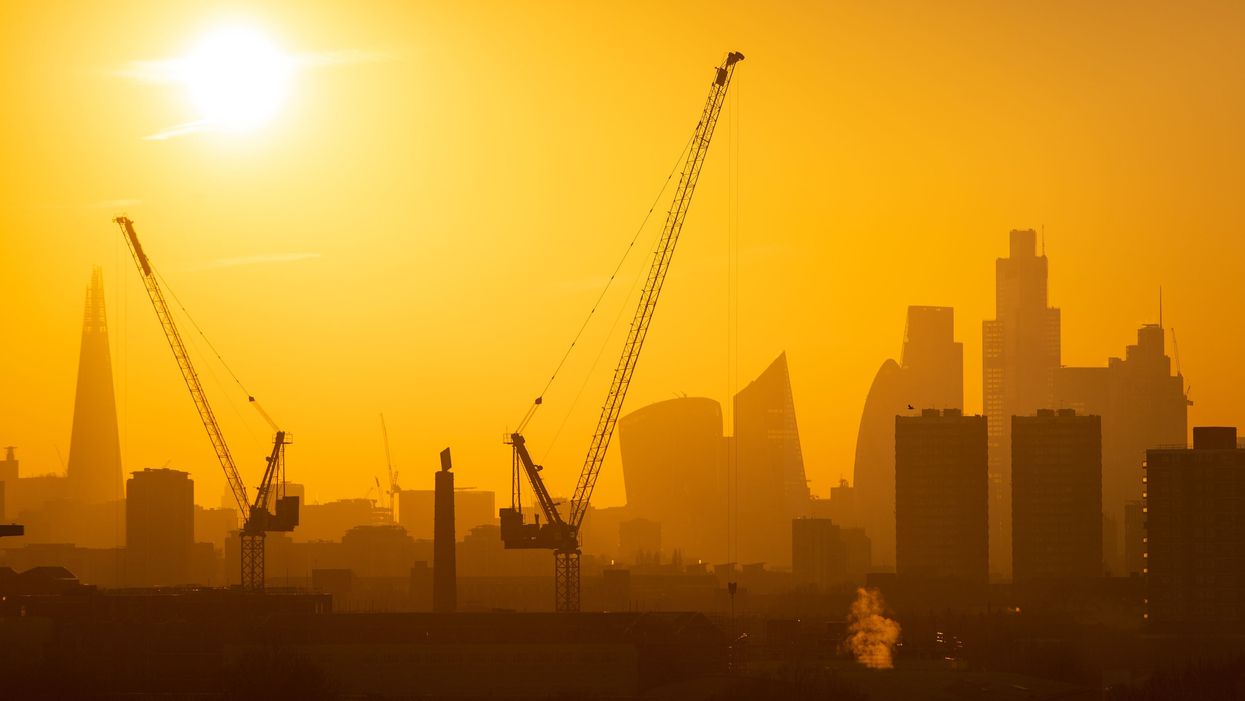News
Tess de La Mare
Oct 24, 2021
As the consequences of climate change become ever more apparent, psychologists have recorded a surge in “eco anxiety”, feelings of fear and hopelessness brought on by the scale of the threat.
More and more people are asking what they can do, but as billionaires are busy blasting off into space, trying to use the car a little less can feel pointless.
But all is not lost, a little action by individuals can add up to big change, here is some handy advice on how you can help keep the goal of limiting global warming to 1.5C alive.
Speak out
When it comes to the climate fight, action begets action and if you are taking steps to make a change, be ready to tell people about it.
Professor Rebecca Willis, a specialist in environmental policy at the University of Lancaster, found that having difficult conversation helps fight the phenomena of “socially organised denial”.
Prof Willis told the PA news agency: “By speaking out, it creates the permission for others to speak out and it catalyses a whole new conversation.”
She continued: “It actually gives people much more sort of agency and sense of purpose because it then becomes a shared concern, and a shared mission to do something about it.”
Protest
Global warming has rocketed up the political agenda since 2018, largely thanks to big ticket protests like the Extinction Rebellion movement and Greta Thunberg’s School Strike for Climate.
The scale of the protests and the broad church of people who took part revealed to politicians just how strong the appetite for change was, empowering politicians to confront the issue head on.
In her research conducted between 2015 and 2018, Prof Willis found many politicians were concerned about the climate, but were reluctant to speak out for fear of being branded niche or at odds with their constituents.
But as more and more people from all walks of life joined the protest, politicians felt increasingly empowered to act, and the UK parliament declared a climate emergency in May 2019.
As Prof Willis put it in her 2019 book Too Hot to Handle: “The less comfortable you feel about protesting, the more powerful a protester you will be.”
Be ready to listen
For any discussion around climate change to be effective you have to have a willing audience.
“The climate community as a whole loves to talk and tell everyone what needs to be done, but doesn’t always think about what that feels like to the listener,” Prof Willis says.
She argues that “working with the grain of people’s instinct and own experience and expertise in their own lives” is significantly more effective than trying to force change from the top down.
Prof Willis cites the example of the proposed coal mine in West Cumbria that is currently the subject of a public inquiry.
“The whole community is now really polarised either for and against the coal mine,” she says.
“But actually it’s because no one went there and said ‘right, you’re an ex-industrial community and you want decent jobs, we’ve got a climate strategy talk to us about what the future of this place could be like and how can we align what you want as a community with what we need to do to get to net zero’ – and that completely changes the conversation.”
The problem with carbon footprint
The British public have been lectured in cutting their “carbon footprint” since the early 2000s.
Initially developed by academics to describe the whole of humanity’s demand on the earth’s natural resources, the phrase was later exploited by big industry to lay responsibility at the consumer’s door.
It ignores the fact that most individuals have very limited choice in how they travel to work, how they heat their homes and the food they can afford to buy.
Dr Stuart Capstick, deputy director of research unit the Centre for Climate Change and Social Transformations, says there is a delicate balance between individual and collective responsibility.
He acknowledges the phrase carbon footprint has been used in bad faith, but adds: “It is important to be aware of our own sort of impacts because it is essential to transform lifestyles.”
“In my view, we simply can’t ignore the environmental impacts of our lifestyles, particularly in the West, particularly among wealthier groups,” he says.
Walk the walk
While it is not up to individuals to tackle the climate crisis with their personal choices, it is reasonable to ask those who can to do their bit.
There are a number of “carbon calculators” available online, such as cutting down on meat on dairy, switching to an electric car, insulating your home and buying second-hand where possible.
Researchers also found individual motivation to live a green lifestyle combined with Government investment could lead to a cascade of health benefits.
A report by think tank Green Alliance published in January 2020 found reduced pollution, warmer homes and active travel could save the NHS £3.7 billion a year and cut tens of thousands of premature deaths.
It is not all or nothing
Some action is better than none, if you can’t give up meat, your car or flying completely, then try and cut back, and tell people what you are doing and why.
By taking action, you make it mainstream for the public to demand alternatives to carbon intensive products and services, and profitable for companies to do the right thing.
A study published in the Lancet Planetary Health this month found the shift away from red meat in recent years is already having a positive impact on land use, water use and emissions in the UK.
Dr Capstick points out the bigger your footprint, the bigger the benefits when you decide to make changes.
“The top 10% (of incomes) have a disproportionate share of emissions, and for those groups transport and travel comprises a big part of their footprint, and a lot of that is flying,” he says.
“So not doing those things that contribute to having a massive footprint clearly do make a difference.”
Do not despair
Sometimes taking a little step back from the enormity of the climate crisis can help individuals match-fit for key battles.
Prof Willis says that taking a break is good for her mental health, but adds: “I also find it really helpful and motivating to get cross and think about what can be done.”
“It is really important not to terrify ourselves because the danger is that leads to absolute fatalism,” she says.
She adds: “1.5C is better than the 1.6C, which in turn is better than 1.7C, the more greenhouse gases we can keep out of the atmosphere, the better.”
Top 100
The Conversation (0)














